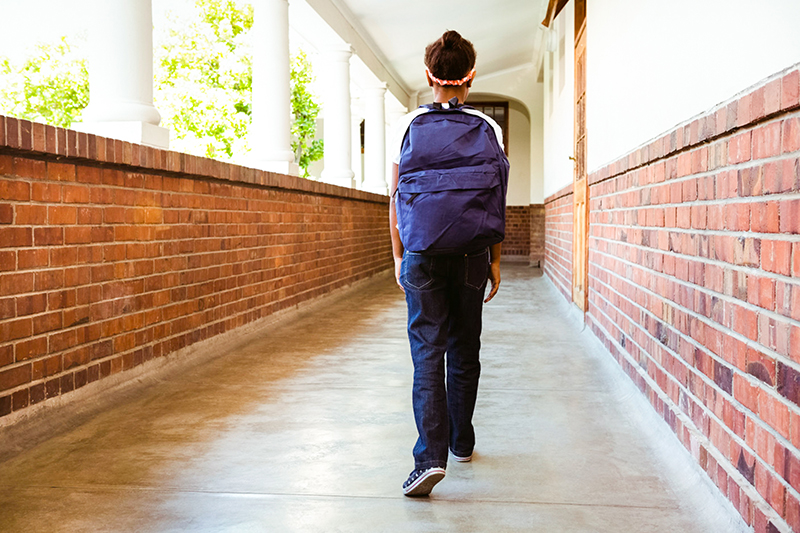
Should You Opt Out Of Standardized Testing?
Written by Erin Feher
Photography by PHOTO VIA CCA KIDS
Ah, Scantrons! Like call-waiting, mix tapes, and scrunchies (version 1), Scantrons were a given when we were growing up. But these days, there is a growing wave of parents and kids revolting against the standardized test. Known as the “opt-out movement,” more than a million students have refused to sit for the test—up to 20% of the student body in some places. The act of resistance is gaining in popularity after years of outcry from parents, students, public education advocates, and assessment experts, who insist that relying on standardized tests as a metric for ability and knowledge is unfair, and that all this excessive testing has led to subpar curriculums in the classroom.
The good news is, as a result, districts across the country are shifting their approach to testing knowledge. But whether or not to opt out is still a big—and highly personal—choice for parents and kids to make, so we asked Hilary Scharton, an education expert and VP of K-12 Product Strategy for Canvas (a learning software used by thousands of schools nationwide), to shed some light on the movement and answer some of our Q’s—such as, what effect does opting out of standardized testing have on the already high-stress college admissions process? She has key insight into changes in the space, and provides some tips for parents on what to consider when it comes to testing time.
In your opinion, why is there a trend towards parents choosing to opt out of standardized testing?
“In 2015, over 650,000 students nationwide opted out of standardized tests. In some parts of the country, up to 20% of students did not participate. Parents are hearing more about how education is getting personalized or individualized. Standardized testing is the antithesis of that, so asking ‘why’ and perhaps choosing a different path for your own student makes sense.”
What should parents and kids consider before making the decision to opt out?
“Parents and students should consider if the student will miss out on any opportunities by not participating in the test. Sometimes results are used to inform participation in ‘advanced’ courses. Scores are also used to provide info for district report cards from the state. If enough students opt out, the school will lose a great source of feedback for improving curriculum and teaching for everyone.”
How does opting out affect day to day learning in the classroom?
“Generally students will participate in test prep regardless, and are only excused from the actual testing. Many test-prep activities are great general academic strategies, so parents might prefer their children get to participate in those.”
If my child isn’t tested, how will I know what they have learned?
“Tests don’t measure what we think they do. We expect tests to tell us how much students have learned. However, significant evidence shows tests aren’t great at figuring out what you know or what your potential is. For example, scoring well on the Scholastic Aptitude Test (SAT) has almost no correlation with success in college. The best predictor of college success is actually high school grades. Tests are designed to be efficient and compare groups. Group comparisons are valuable because they give us data about curriculum efficacy and how to allocate funding, however, these tests won’t cover every topic students learned, and will need to be easy to administer and to grade. That means test authors have to use multiple-choice questions and leave out questions that might get at more important skills, like critical thinking or creativity, resulting in rewarding passive and superficial learning, like memorizing facts or formulas.”
How does opting out affect the process of applying to colleges or other higher education programs?
“Many high education programs are moving to ‘test optional’ or ‘test flexible’ admissions. For a pretty comprehensive list, go to Fairtest.org. Not providing SAT or ACT scores may limit the schools you can apply to. It’s important to remember, the best predictor of success as a college freshman is the grades you got in high school, so encouraging your student to get good grades and participate in other portfolio-building activities will give them the best shot at getting in.”
Are there better types of tests out there?
“Different tests tell us about individual learning. We need to make sure we’re doing different kinds of testing so we get good group AND individual data—which best measures individual growth—and that these different forms of tests are integrated into learning. Assessment is authentic when it asks students to apply their knowledge to real-world, meaningful problems. Rather than giving geometry students worksheet problems to solve, implement a project to come up with a better juice box that minimizes shipping costs and maximizes profits.”
How can I make sure my child is doing well if they aren’t being tested?
“Be involved. Districts are great at letting parents know when and how students will participate in standardized tests, but the only way to know about what’s happening in the classroom is to talk with your child’s teacher. Teachers are the experts—they know how important assessment is and how to do it well. Don’t be afraid to ask how your child will be graded on what they learn, what success looks like, or how much time will be spent preparing for standardized tests.”
In your experience, are these decisions being made for the child’s individual benefit, or are they being enacted to help push through broader change in the education system as a whole?
“In my experience, parents who opt out tend to make the decision for personal reasons and any institutional change would be a side benefit.”
For more on the topic of education, check out our piece on The Importance Of Play-Based Education In The Early Years.
Share this story




